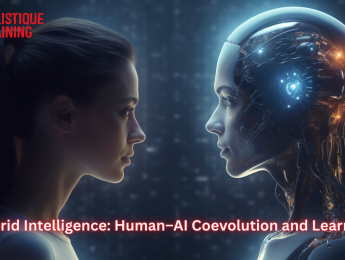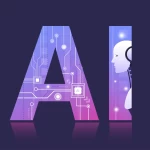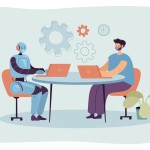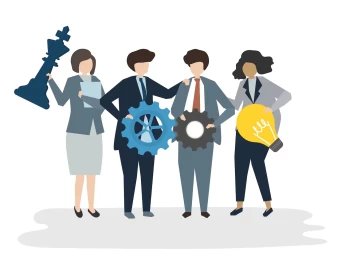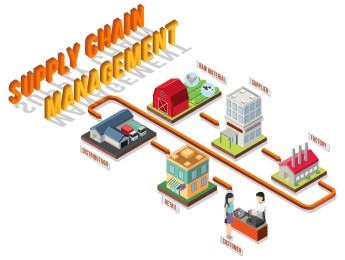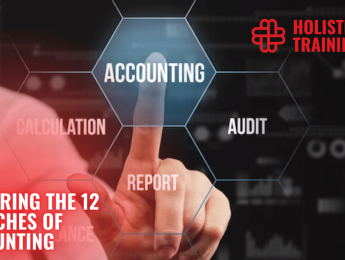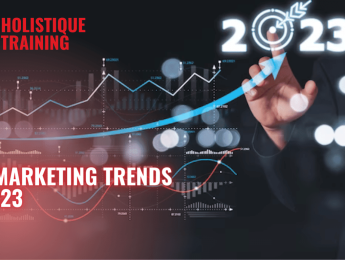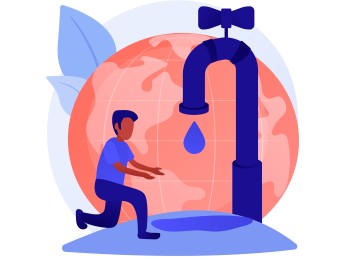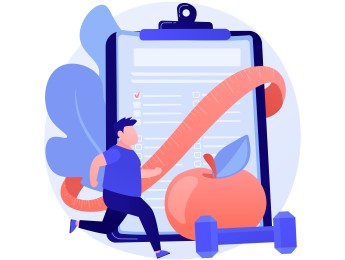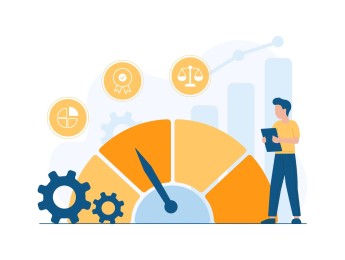- Table of Contents
- 1. Introduction
- 2. What is Hybrid Intelligence?
- 3. Historical Evolution of AI and Humans
- 4. The Role of Human Intelligence in Hybrid Intelligence
- 5. The Role of AI in Hybrid Intelligence
- 6. Shared Learning Between Humans and AI
- 7. Ethical Challenges in Hybrid Intelligence
- 8. Hybrid Intelligence in the Future Workforce
- 9. Human-AI Interaction in Analysis and Decision-Making
- 10. The Future of Hybrid Intelligence: Shaping Our Society
- Conclusion
1. Introduction
In recent years, the concept of hybrid intelligence, where human cognitive abilities work alongside artificial intelligence (AI), has gained significant attention. The advancement of AI has already led to transformational changes in various industries, but when combined with human expertise, it promises even greater potential. Hybrid intelligence offers an innovative approach where the strengths of both human intelligence—creativity, emotional understanding, and ethical judgment—and AI's capabilities in processing large datasets, automation, and pattern recognition can be leveraged for enhanced decision-making, efficiency, and problem-solving. This partnership between humans and machines is reshaping industries, work environments, and even our daily lives. However, as this collaboration becomes more widespread, it also introduces ethical and societal challenges that need careful consideration.
In this article, we will discuss the definition and importance of hybrid intelligence, the roles of both human and AI, the history of AI’s evolution, how they coevolve, and the challenges of integrating both entities in a harmonious and ethical way. We will also explore how hybrid intelligence is shaping the future of work, decision-making, and the broader societal impact.
2. What is Hybrid Intelligence?
Hybrid intelligence refers to the integrated collaboration between human cognitive functions and artificial intelligence systems, where both work together to achieve outcomes that neither could accomplish alone. It is a concept rooted in the idea that human intelligence brings creativity, intuition, and ethical decision-making, while AI excels in areas like data processing, automation, and recognizing patterns at large scales.
In practical terms, hybrid intelligence can take many forms, from AI-enhanced tools that assist humans in making better decisions to entirely new types of workflows where humans and machines collaborate directly. Unlike traditional views where AI replaces human effort, hybrid intelligence positions AI as a complementary tool, where both entities strengthen one another. For example, AI can process complex datasets and generate predictions, while humans can provide insights, verify results, and make final decisions based on emotional intelligence or ethical concerns.
Looking toward the future, the importance of this interaction cannot be overstated. As AI becomes increasingly integrated into industries such as healthcare, finance, and education, the need for hybrid intelligence will become even more prominent. Humans and AI together will drive innovation and tackle challenges that neither could solve alone.
3. Historical Evolution of AI and Humans
The relationship between humans and AI has evolved considerably since the early days of artificial intelligence. AI's roots can be traced back to the 1950s, with pioneers like Alan Turing proposing the idea of machines capable of mimicking human thought. The initial efforts focused on symbolic AI, where machines followed predefined rules to solve problems. These systems were limited in their ability to adapt and learn.
The breakthrough came with the development of machine learning and, later, deep learning. Machine learning algorithms allowed AI systems to "learn" from data rather than being explicitly programmed for every task. This shift from rule-based systems to learning algorithms enabled AI to tackle more complex tasks, such as image recognition, natural language processing, and autonomous driving. As AI became more capable, its integration with human workflows became more seamless, allowing humans to focus on higher-level thinking and decision-making while AI handled repetitive, data-intensive tasks.
Humans, on the other hand, have always been integral to AI development. From designing early algorithms to providing the data AI needs to learn, humans have shaped AI’s growth. Over the years, the collaboration between the two has evolved from one where AI simply assists humans to one where both entities can co-evolve, continuously learning and improving together.
4. The Role of Human Intelligence in Hybrid Intelligence
Human intelligence remains central to the success of hybrid intelligence systems. While AI can perform specific tasks with high efficiency, humans bring unique qualities that AI cannot replicate—such as creativity, empathy, and ethical judgment. These human traits are especially important in environments that require complex decision-making or the consideration of moral implications.
For instance, in healthcare, AI can analyze medical data and recommend treatments based on patterns in large datasets. However, human doctors provide the nuanced understanding of patient needs, communicate treatment options, and make final decisions based on ethical considerations. Human expertise is also crucial in ensuring that AI systems are used responsibly, avoiding biases and ensuring fairness in outcomes.
Human intelligence contributes not only through decision-making but also by providing the necessary feedback that allows AI systems to improve. This collaborative learning process enhances both human and machine performance, making the combination of the two more powerful than either one alone.
Aspect | Role of Human Intelligence | Practical Examples |
Creativity | Humans have the ability to think creatively and innovate new solutions and ideas. | In design: Designers provide creative solutions, while AI helps analyze data and enhance designs. |
Empathy | Humans can understand emotions and human needs in a way AI cannot replicate. | In healthcare: Doctors communicate with patients, provide emotional support, while AI assists in diagnosis and treatment. |
Ethical Judgment | Humans can make decisions based on ethical considerations, taking values and principles into account. | In law: Lawyers use AI to analyze cases but make legal decisions based on ethical principles. |
Interpretation and Communication | Humans can interpret AI results and explain them in practical contexts. | In education: Teachers use AI tools to provide personalized learning, but they provide the human context and guidance. |
Feedback for Improvement | Humans provide feedback that helps AI systems improve and learn over time. | In industry: Engineers give feedback on AI systems' performance to improve efficiency and reduce errors in production. |
5. The Role of AI in Hybrid Intelligence
AI plays a crucial role in enhancing human capabilities in a hybrid intelligence framework. Through automation and data analysis, AI accelerates processes that would otherwise be too time-consuming or complex for humans to handle. AI systems can quickly process large volumes of data, identify patterns, and provide recommendations, enabling humans to make more informed decisions.
For example, in the financial sector, AI systems are used to analyze market trends and predict stock movements, which helps investors make better decisions. Similarly, in education, AI-powered platforms offer personalized learning experiences by adapting to each student's needs, while teachers continue to provide guidance and emotional support.
AI's role in hybrid intelligence also extends to helping humans improve their own capabilities. By learning from human input and continuously adapting to changing circumstances, AI systems can provide valuable insights that humans can apply to their work, resulting in enhanced productivity, innovation, and efficiency across various industries.
6. Shared Learning Between Humans and AI
Shared learning between humans and AI is a key feature of hybrid intelligence. Unlike traditional AI systems that operate independently, hybrid intelligence systems involve mutual learning—both humans and AI systems contribute to the development and refinement of the other.
One of the primary ways this shared learning takes place is through human feedback. For example, when AI tools make predictions or provide recommendations, humans can offer feedback, correcting mistakes or suggesting improvements. In turn, AI systems learn from this feedback, becoming more accurate and effective over time. This feedback loop creates a dynamic process where both parties enhance each other's abilities.
In industries like healthcare, this shared learning is particularly valuable. AI can analyze patient data to provide doctors with potential diagnoses, but the doctors, through their expertise and judgment, provide feedback that helps refine the AI system. This collaboration leads to more accurate diagnoses and better patient outcomes.
7. Ethical Challenges in Hybrid Intelligence
As the use of hybrid intelligence grows, so do the ethical challenges associated with it. One of the biggest concerns is the potential for AI to operate in ways that humans cannot control. There is a fear that as AI systems become more autonomous, they could make decisions that humans do not fully understand or that may not align with human values.
Another concern is bias in AI algorithms. If AI systems are trained on biased data, they can perpetuate and even exacerbate inequalities. Ensuring that AI systems are transparent, fair, and aligned with ethical principles is crucial to their responsible use.
To address these concerns, it is essential to establish guidelines and regulations for AI development and use. Human oversight, transparency in decision-making, and the continuous evaluation of AI systems are necessary to ensure that AI remains a force for good in society.
8. Hybrid Intelligence in the Future Workforce
Hybrid intelligence is already reshaping the workforce, and its impact will continue to grow in the future. As AI takes over routine tasks, humans will be able to focus on more strategic, creative, and interpersonal roles. This shift will likely result in the creation of new job roles that require both human and AI expertise.
The table below outlines some of the professions expected to be influenced by hybrid intelligence:
Profession | AI Contribution | Human Contribution |
Healthcare Providers | AI diagnostics, patient data analysis | Patient care, ethical decision-making, communication |
Financial Analysts | Data processing, trend analysis | Strategy development, ethical investment decisions |
Teachers | Personalized learning platforms, performance tracking | Emotional support, mentorship, individualized teaching |
Marketing Managers | Consumer behavior analysis, targeted advertising | Campaign strategy, creativity, customer relations |
As hybrid intelligence becomes more prevalent, individuals will need to develop new skills to work effectively alongside AI. This includes both technical skills in AI and soft skills like creativity and emotional intelligence.
9. Human-AI Interaction in Analysis and Decision-Making
The combination of human and AI abilities allows for enhanced decision-making, particularly when it comes to analyzing large datasets. AI systems can quickly identify trends and make predictions, but humans must interpret these findings and consider the broader context. This partnership is especially important in areas where ethical or moral considerations are involved.
For example, in law, AI tools can help lawyers analyze case law and predict case outcomes, but human lawyers must make the final decisions based on their understanding of the legal system and the nuances of each case. Similarly, in business, AI can assist in analyzing market trends, but human decision-makers will need to consider long-term implications and company values before taking action.
10. The Future of Hybrid Intelligence: Shaping Our Society
As hybrid intelligence becomes more integrated into workplaces, continuous learning will be essential for individuals to stay competitive. Both humans and AI systems must continuously evolve to adapt to changing technologies and market demands.
Training programs that focus on both technical and soft skills will be necessary to ensure that individuals can work effectively with AI. Professionals will need to develop an understanding of AI tools, as well as the ability to apply them creatively and ethically in their work.
The future of hybrid intelligence holds enormous potential to transform society. As AI continues to evolve, humans will work alongside increasingly intelligent machines to solve complex problems and improve quality of life. From healthcare to education, AI will enhance human capabilities, allowing us to address challenges in new and innovative ways.
At the same time, it is essential to navigate the ethical, social, and economic implications of hybrid intelligence. By ensuring that AI development aligns with human values and that the benefits of AI are shared equitably, we can create a future where humans and machines work together for the common good.
Conclusion
In conclusion, hybrid intelligence represents a groundbreaking shift in how humans and AI can collaborate to achieve outcomes that neither could accomplish alone. As we move towards a future where both human creativity and AI's analytical power complement each other, the potential for innovation and growth is immense. By combining human expertise in decision-making, ethical reasoning, and emotional intelligence with AI's capacity for processing vast amounts of data, we are entering an era of unprecedented problem-solving abilities and efficiency.
However, with this progress comes the responsibility to ensure that AI is used ethically, transparently, and in a way that aligns with human values. Addressing the challenges of bias, control, and the potential loss of human autonomy will be crucial to making hybrid intelligence a positive force for society. As the future workforce evolves, hybrid intelligence will redefine roles, create new job opportunities, and require individuals to adapt and learn continuously.
Ultimately, hybrid intelligence has the potential to transform not just industries, but society as a whole, enabling us to solve complex problems and enhance the quality of life on a global scale. By embracing this coevolution of humans and AI, we can build a future where both entities work together harmoniously for the greater good.
Don't forget to subscribe to our newsletter for more insights on AI, technology, and the future of work.


